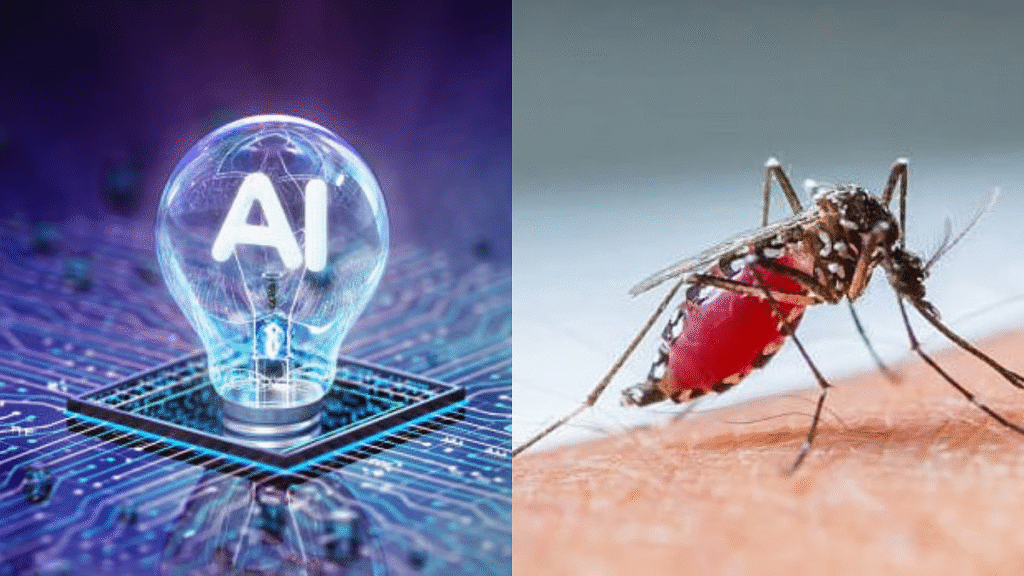If you’ve ever sat outside on a summer night in Virginia Beach and been eaten alive by mosquitoes, you know how frustrating they are. It’s not just the itchy bites, either—it’s the constant buzzing in your ear, the worry about diseases, and the fact that no matter how much repellent you spray, they always seem to find you.
Well, here’s the good news: 2025 is bringing in some pretty wild new mosquito control Virginia Beach technologies. And I’m not talking about your typical citronella candle or the city fogging truck that rolls through every so often. Nope—this is stuff straight out of a sci-fi movie. Think artificial intelligence, bacteria that can stop mosquitoes from spreading diseases, and even drones zipping around spraying problem spots.
So, let’s dive into what’s new, what’s promising, and what might actually give us a break from these little vampires.
AI and Vision Transformers: High-Tech Bug Spotting
One of the hardest parts of mosquito control is figuring out what kind of mosquito you’re even dealing with. Some are just annoying, while others can spread things like West Nile or Zika.
This is where artificial intelligence steps in. Researchers are using vision transformer systems that can identify mosquitoes based on photos or even the sound of their wingbeats. Imagine a little device in your yard that “hears” a mosquito and sends you (and local health teams) an alert saying, “Yep, that’s the bad kind.”
It sounds futuristic, but it’s already being tested in different cities. The goal is simple: stop spraying everywhere and instead target only the problem spots.
Wolbachia Bacteria: Fighting Nature with Nature
This one’s pretty clever. Scientists are releasing mosquitoes infected with a bacteria called Wolbachia. It doesn’t hurt humans, pets, or the environment, but it messes with how mosquitoes reproduce and carry diseases.
The result? Mosquito populations drop, and the ones that stick around are way less dangerous. Florida and California have already tried this, and it’s working. Instead of drenching neighborhoods in chemicals, it’s more like using mosquitoes to fight mosquitoes.
Sterile Mosquito Programs—But Smarter
Releasing sterile male mosquitoes isn’t new, but the tech behind it is getting way better. In 2025, gene-editing tools are helping scientists create sterile males that are healthier and stronger, so they can actually compete with wild males when it comes to mating.
Why does that matter? Because if the sterile guys can’t get a date, the whole plan falls apart. With these improvements, scientists are seeing real drops in mosquito populations in test areas.
Drones and Smart Sprayers
Forget those big noisy fogging trucks—drones are starting to do the job instead. They can fly into marshes, drainage ditches, or even places like rooftops where water collects, and drop larvicide exactly where it’s needed.
Some mosquito treatment Virginia Beach sprayers are now “smart,” meaning they adjust the amount of pesticide depending on the weather, wind, or mosquito activity. Less waste, less exposure for people, and way more precision.
Next-Gen Traps for Backyards
Not everything is high-tech. Some of the newest mosquito traps are designed for everyday homeowners. These little gadgets lure mosquitoes in using CO₂ and scent mimics, then trap or zap them. A lot of them are solar-powered, and some even send data to your phone so you can see how many you’ve caught.
It’s like having your own mini mosquito surveillance system without lifting a finger.
FAQs
Q: Will these new tools replace sprays and repellents?
Not completely—at least not yet. Sprays and repellents are still useful, but these new tools can help reduce how often you need them.
Q: Is it safe to release bacteria or genetically modified mosquitoes?
Yes. Wolbachia bacteria are harmless to humans and animals. Gene-editing programs target only mosquitoes. Studies so far show no negative side effects.
Q: Can homeowners buy any of this tech?
Some of the new traps and AI-based devices are starting to hit the consumer market. But the larger programs, like Wolbachia releases or sterile male projects, are run by public health departments.
Q: Are drones actually being used for mosquito control?
They are! Some areas with tough-to-reach breeding grounds are already flying them. They’re more efficient than sending people in with backpack sprayers.
Wrapping It Up
Here’s the deal: mosquitoes aren’t going away completely. They’ve been around forever, and they’re annoyingly good at survival. But in 2025, we’re finally starting to outsmart them. AI that can “listen” for wingbeats, drones that spray hard-to-reach spots, bacteria that makes them less dangerous—it’s all part of a bigger toolbox to keep these pests in check.
So, next time you’re sitting in your backyard in Virginia Beach, swatting at a mosquito, just remember: science is catching up. And who knows—maybe in a few years, your yard will have its own little smart mosquito defense system quietly working in the background while you enjoy your summer evenings in peace.

